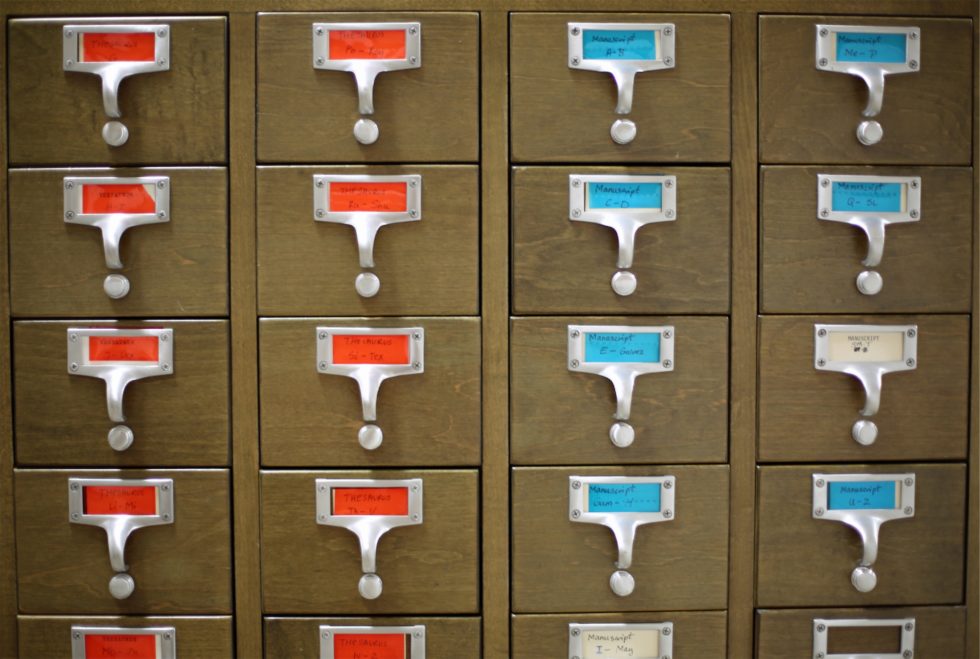
The Galveston and Texas History Center collects, preserves and organizes archival materials that document the history of Galveston and Texas, focusing on Galveston from the city’s incorporation in 1839 through the present. The collection also includes Texas from the Spanish period to the end of the Civil War.
Our collections consist of books, manuscripts, photographs, maps, architectural drawings, oral histories, vertical files, and ephemera.
In 1871, only thirty-five years after Texas won its independence from Mexico, twelve men gathered to form the Galveston Historical Society. They recognized the importance of collecting and preserving papers, maps, and artifacts that illustrated the history of Texas.
It is the aim of the society to receive and preserve manuscripts, printed matter, maps and all objects that may serve to illustrate the general history of Texas, and of localities and events therein. However slight and unimportant a single letter, printed sheet, or object possessing historical interest may seem to be when considered singly; it acquires a new value when placed in position with other links in the chain of testimony to which it may properly belong. Private letters, memoranda, old newspapers, and pamphlets of little or no apparent value, always throw some light on contemporary times.
--From the Constitution of Galveston Historical Society, 1871--
By 1876 interest in the organization began to wane. When D. G. Herbert, custodian of the documents, died, the location of the collection became unknown. The papers were lost for nine years, but in 1885 Philip C. Tucker, the society's president, found the collection and took responsibility for it.
In 1895 the Galveston Historical Society died out. Later that year Rabbi Henry Cohen and E. G. Littlejohn reorganized the Society to create the Texas Historical Society.
Part of the archives was lost or damaged during the 1900 Storm. In September 1904, the Texas Historical Society moved its papers into the newly constructed Rosenberg Library.
The Rosenberg Library, opened June 22, 1904, was established by a bequest from Henry Rosenberg in 1893. After the Texas Historical Society deposited its holdings with the Rosenberg Library, the manuscripts were wrapped in bundles, labeled carefully, and filed by date in deep drawers.
In 1921 the Texas Historical Society requested the Rosenberg Library to become the "official custodian" of the collection, whereby the Library housed and arranged the papers but the Society retained ownership. Ten years later the Texas Historical Society officially transferred all ownership of the collection to the Rosenberg Library.
By 1929 the manuscripts were listed chronologically mainly through the efforts of Ruth Madden and volunteer John M. Winterbotham. Library Director Frank C. Patten recognized the importance of the historical collection and continued and encouraged the practice of collecting important local history.
When Frank Patten died in 1934, cataloguing stopped. Eventually the manuscripts were stored in boxes or bundles in the attic of the old Lecture Hall on the second floor.
On January 18, 1942, the John Miller Winterbotham Memorial Room opened through an endowment from his estate. Over 1,600 volumes and 25,000 manuscripts were included in the collection at this time.
In 1945 the Library hired Ruth G. Nichols to organize and catalog the archives collection into one large chronological file including a subject index.
In 1971 the Rosenberg Library added the Moody Wing, which doubled the size of the original building. This wing included space for the Archives Department to be housed in a fire-proof, climate-controlled, vault with a reading room, workroom and department head office. A separate book room was constructed in 1996.
The Rosenberg Library received a grant of $12,580 from the National Historical Publications and Records Commission in 1976 to provide access to the Archives Collection through processing and creating finding guides.
The Archives Department was officially renamed the Galveston and Texas History Center in 1983.
Today, the Galveston and Texas History Center is part of the Rosenberg Library’s Special Collections Department, along with the Rosenberg Library Museum. The Special Collections Department organizes, preserves, and provides public access to the Library’s renowned archival and museum collections.